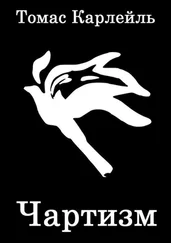Томас Карлейль - History of Friedrich II of Prussia — Volume 20
Здесь есть возможность читать онлайн «Томас Карлейль - History of Friedrich II of Prussia — Volume 20» — ознакомительный отрывок электронной книги совершенно бесплатно, а после прочтения отрывка купить полную версию. В некоторых случаях можно слушать аудио, скачать через торрент в формате fb2 и присутствует краткое содержание. Жанр: foreign_prose, История, literature_19, foreign_edu, foreign_antique, на английском языке. Описание произведения, (предисловие) а так же отзывы посетителей доступны на портале библиотеки ЛибКат.
- Название:History of Friedrich II of Prussia — Volume 20
- Автор:
- Жанр:
- Год:неизвестен
- ISBN:нет данных
- Рейтинг книги:5 / 5. Голосов: 1
-
Избранное:Добавить в избранное
- Отзывы:
-
Ваша оценка:
- 100
- 1
- 2
- 3
- 4
- 5
History of Friedrich II of Prussia — Volume 20: краткое содержание, описание и аннотация
Предлагаем к чтению аннотацию, описание, краткое содержание или предисловие (зависит от того, что написал сам автор книги «History of Friedrich II of Prussia — Volume 20»). Если вы не нашли необходимую информацию о книге — напишите в комментариях, мы постараемся отыскать её.
History of Friedrich II of Prussia — Volume 20 — читать онлайн ознакомительный отрывок
Ниже представлен текст книги, разбитый по страницам. Система сохранения места последней прочитанной страницы, позволяет с удобством читать онлайн бесплатно книгу «History of Friedrich II of Prussia — Volume 20», без необходимости каждый раз заново искать на чём Вы остановились. Поставьте закладку, и сможете в любой момент перейти на страницу, на которой закончили чтение.
Интервал:
Закладка:
Fight SECOND (July 16th) was a kind of revenge on the Erbprinz's part: Affair of EMSDORF, six days after, in the same neighborhood; beautiful too, said the Gazetteers; but of result still more insignificant. Hearing of a considerable French Brigade posted not far off, at that Village of Emsdorf, to guard Broglio's meal-carts there, the indignant Erbprinz shoots off for that; light of foot,—English horse mainly, and Hill Scots (BERG-SCHOTTEN so called, who have a fine free stride, in summer weather);—dashes in upon said Brigade (Dragoons of Bauffremont and other picked men), who stood firmly on the defensive; but were cut up, in an amazing manner, root and branch, after a fierce struggle, and as it were brought home in one's pocket. To the admiration of military circles,—especially of mess-rooms and the junior sort. "Elliot's light horse [part of the new 7,000], what a regiment! Unparalleled for willingness, and audacity of fence; lost 125 killed,"—in fact, the loss chiefly fell on Elliot. [Ib. ii. 109 (Prisoners got "were 2,661, including General and Officers 179," with all their furnitures whatsoever, "400 horses, 8 cannon," &c.).] The BERG-SCHOTTEN too,—I think it was here that these kilted fellows, who had marched with such a stride, "came home mostly riding:" poor Beauffremont Dragoons being entirely cut up, or pocketed as prisoners, and their horses ridden in this unexpected manner! But we must not linger,—hardly even on WARBURG, which was the THIRD and greatest; and has still points of memorability, though now so obliterated.
"Warburg," says my Note on this latter, "is a pleasant little Hessian Town, some twenty-five miles west of Cassel, standing on the north or left bank of the Diemel, among fruitful knolls and hollows. The famous 'BATTLE OF WARBURG,'—if you try to inquire in the Town itself, from your brief railway-station, it is much if some intelligent inhabitant, at last, remembers to have heard of it! The thing went thus: Chevalier du Muy, who is Broglio's Rear-guard or Reserve, 30,000 foot and horse, with his back to the Diemel, and eight bridges across it in case of accident, has his right flank leaning on Warburg, and his left on a Village of Ossendorf, some two miles to northwest of that. Broglio, Prince Xavier of Saxony, especially Duke Ferdinand, are all vehemently and mysteriously moving about, since that Fight of Korbach; Broglio intent to have Cassel besieged, Du Muy keeping the Diemel for him; Ferdinand eager to have the Diemel back from Du Muy and him.
"Two days ago (July 29th), the Erbprinz crossed over into these neighborhoods, with a strong Vanguard, nearly equal to Du Muy; and, after studious reconnoitring and survey had, means, this morning (July 31st), to knock him over the Diemel again, if he can. No time to be lost; Broglio near and in such force. Duke Ferdinand too, quitting Broglio for a moment, is on march this way; crossed the Diemel, about midnight, some ten miles farther down, or eastward; will thence bend southward, at his best speed, to support the Erbprinz, if necessary, and beset the Diemel when got;—Erbprinz not, however, in any wise, to wait for him; such the pressure from Broglio and others. A most busy swift-going scene that morning;—hardly worth such describing at this date of time.
"The Erbprinz, who is still rather to northeastward, that is to rightward, not directly frontward, of Du Muy's lines; and whose plan of attack is still dark to Du Muy, commences [about 8 A.M., I should guess] by launching his British Legion so called,—which is a composite body, of Free-Corps nature, British some of it ('Colonel Beckwith's people,' for example), not British by much the most of it, but an aggregate of wild strikers, given to plunder too:—by launching his British Legion upon Warburg Town, there to take charge of Du Muy's right wing. Which Legion, 'with great rapidity, not only pitched the French all out, but clean plundered the poor Town;' and is a sad sore on Du Muy's right, who cannot get it attended to, in the ominous aspects elsewhere visible. For the Erbprinz, who is a strategic creature, comes on, in the style of Friedrich, not straight towards Du Muy, but sweeps out in two columns round northward; privately intending upon Du Muy's left wing and front—left wing, right wing, (by British Legion), and front, all three;—and is well aided by a mist which now fell, and which hung on the higher ground, and covered his march, for an hour or more. This mist had not begun when he saw, on the knoll-tops, far off on the right, but indisputable as he flattered himself,—something of Ferdinand emerging! Saw this; and pours along, we can suppose, with still better step and temper. And bursts, pretty simultaneously, upon Du Muy's right wing and left wing, coercing his front the while; squelches both these wings furiously together; forces the coerced centre, mostly horse, to plunge back into the Diemel, and swim. Horse could swim; but many of the Foot, who tried, got drowned. And, on the whole, Du Muy is a good deal wrecked [1,600 killed, 2,000 prisoners, not to speak of cannon and flags], and, but for his eight bridges, would have been totally ruined.
"The fight was uncommonly furious, especially on Du Muy's left; 'Maxwell's Brigade' going at it, with the finest bayonet-practice, musketry, artillery-practice; obstinate as bears. On Du Muy's right, the British Legion, left wing, British too by name, had a much easier job. But the fight generally was of hot and stubborn kind, for hours, perhaps two or more;—and some say, would not have ended so triumphantly, had it not been for Duke Ferdinand's Vanguard, Lord Granby and the English Horse; who, warned by the noise ahead, pushed on at the top of their speed, and got in before the death. Granby and the Blues had gone at the high trot, for above five miles; and, I doubt not, were in keen humor when they rose to the gallop and slashed in. Mauvillon says, 'It was in this attack that Lord Granby, at the head of the Blues, his own regiment, had his hat blown off; a big bald circle in his head rendering the loss more conspicuous. But he never minded; stormed still on,' bare bald head among the helmets and sabres; 'and made it very evident that had he, instead of Sackville, led at Minden, there had been a different story to tell. The English, by their valor,' adds he, 'greatly distinguished themselves this day. And accordingly they suffered by far the most; their loss amounting to 590 men:' or, as others count,—out of 1,200 killed and wounded, 800 were English." [Mauvillon, ii. 114. Or better, in all these three cases, as elsewhere, Tempelhof's specific Chapter on Ferdinand (Tempelhof, iv. 101-122). Ferdinand's Despatch (to King George), in Knesebeck, ii. 96-98;—or in the Old Newspapers ( Gentleman's Magazine, xxx. 386, 387), where also is Lord Granby's Despatch.]
This of Granby and the bald head is mainly what now renders Warburg memorable. For, in a year or two, the excellent Reynolds did a Portrait of Granby; and by no means forgot this incident; but gives him bare-headed, bare and bald; the oblivious British connoisseur not now knowing why, as perhaps he ought. The portrait, I suppose, may be in Belvoir Castle; the artistic Why of the baldness is this BATTLE OF WARBURG, as above. An Affair otherwise of no moment. Ferdinand had soon to quit the Diemel, or to find it useless for him, and to try other methods,—fencing gallantly, but too weak for Broglio; and, on the whole, had a difficult Campaign of it, against that considerable Soldier with forces so superior.
Chapter III.—BATTLE OF LIEGNITZ
Friedrich stayed hardly one day in Neissen Country; Silesia, in the jaws of destruction, requiring such speed from him. His new Series of Marches thitherward, for the next two weeks especially, with Daun and Lacy, and at last with Loudon too, for escort, are still more singular than the foregoing; a fortnight of Soldier History such as is hardly to be paralleled elsewhere. Of his inward gloom one hears nothing. But the Problem itself approaches to the desperate; needing daily new invention, new audacity, with imminent destruction overhanging it throughout. A March distinguished in Military Annals;—but of which it is not for us to pretend treating. Military readers will find it in TEMPELHOF, and the supplementary Books from time to time cited here. And, for our own share, we can only say, that Friedrich's labors strike us as abundantly Herculean; more Alcides-like than ever,—the rather as hopes of any success have sunk lower than ever. A modern Alcides, appointed to confront Tartarus itself, and be victorious over the Three-headed Dog. Daun, Lacy, Loudon coming on you simultaneously, open-mouthed, are a considerable Tartarean Dog! Soldiers judge that the King's resources of genius were extremely conspicuous on this occasion; and to all men it is in evidence that seldom in the Arena of this Universe, looked on by the idle Populaces and by the eternal Gods and Antigods (called Devils), did a Son of Adam fence better for himself, now and throughout.
Читать дальшеИнтервал:
Закладка:
Похожие книги на «History of Friedrich II of Prussia — Volume 20»
Представляем Вашему вниманию похожие книги на «History of Friedrich II of Prussia — Volume 20» списком для выбора. Мы отобрали схожую по названию и смыслу литературу в надежде предоставить читателям больше вариантов отыскать новые, интересные, ещё непрочитанные произведения.
Обсуждение, отзывы о книге «History of Friedrich II of Prussia — Volume 20» и просто собственные мнения читателей. Оставьте ваши комментарии, напишите, что Вы думаете о произведении, его смысле или главных героях. Укажите что конкретно понравилось, а что нет, и почему Вы так считаете.









